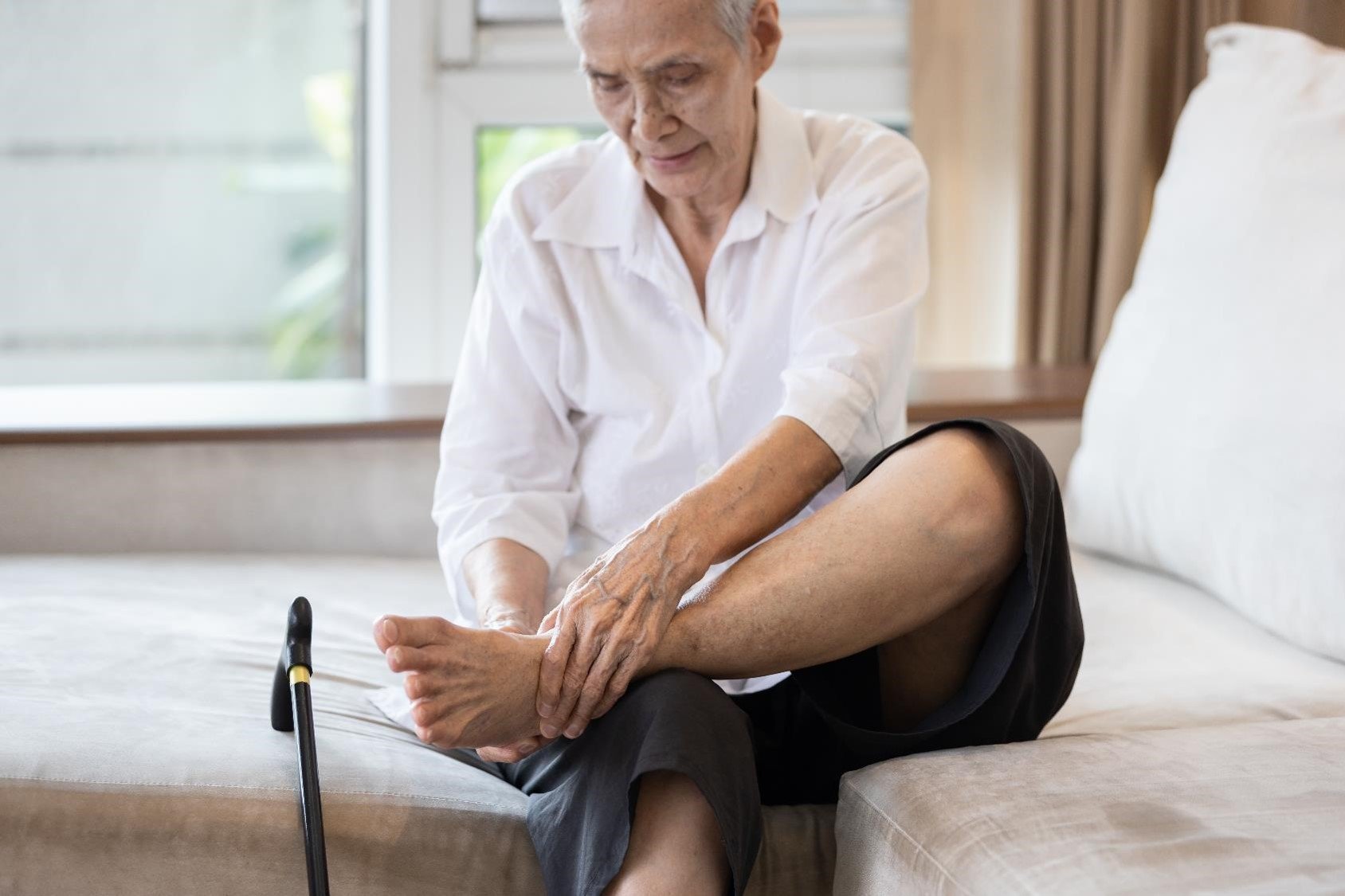We’ve been talking with more elders who are living with peripheral neuropathy. That tingling, numbness, or pain in the extremities, especially feet, is more common than most people realize. Yale Medicine suggests “People are more likely to develop peripheral neuropathy as they age.” What might surprise you is the incredible potential for relief and hope that can be found, especially through the positive changes diet can bring in managing and treating this condition. Neuropathy relief might be easier than you realize!
What it is:
Peripheral neuropathy happens when the nerves that are located outside the brain and spinal cord (peripheral nerves) are damaged. This condition often causes weakness, numbness, and pain, usually in the hands and feet. – Mayo Clinic. While its causes are numerous, it’s crucial to recognize that we can take proactive steps to alleviate its impact.
Common Causes:
The most common cause of peripheral neuropathy is often linked to diabetes and other metabolic issues such as kidney or liver disease. Poor diet and vitamin deficiencies; Injuries, such as motor vehicle accidents and falls; infections; and alcohol abuse are other commonly reported causes. It can also be hereditary. And in some cases, the cause is simply unknown.
Treatments:
According to WebMD, “Treatment of peripheral neuropathy relies heavily on the cause of the nerve damage.” The good news is that, in many instances, there is room for improvement and even the possibility of reversing some of the symptoms! Your medical history and your preferences are other important factors. Your journey towards relief starts with a conversation with your doctor who will help you understand how nerve damage is causing your specific symptoms and how to minimize and manage them. There are many possible treatment options your doctor will likely discuss with you and are beyond the scope of this blog. Here, we’ll focus on just one: nutrition.
The Role of Nutrition:
Your nerves require the right balance of nutrients to function optimally. Niva Health reports, “Treatment plans for neuropathy almost always include dietary changes and a partnership with a nutritionist or dietitian.” Enhancing your diet and addressing vitamin deficiencies can make a considerable difference. As part of its Ideal Neuropathy Diet to reduce neuropathy symptoms, Niva Health recommends seven foods, each with its unique benefits.
Recommended Foods:
- Fruits: These can help prevent nerve damage and support the healing of nerve damage.
- Vegetables: Rich in antioxidants, vitamins, and minerals, they are a valuable addition to your diet.
- Whole grains: High in fiber and anti-inflammatory properties, they are preferable over refined grains such as white bread which can trigger neuropathy symptoms.
- Nuts: Packed with Vitamin B and fiber, almonds, cashews, and walnuts can be a great choice.
- Legumes: With their magnesium content, legumes can help calm nerves, restore nerve function, and aid in nerve regeneration.
- Omega-3-rich Foods: These contain resolvins, which are protective molecules that can improve neuropathy symptoms.
- Lean proteins: Fish and poultry, for instance, contribute to nerve healing.
Foods to Avoid:
The Brain Center published a list of foods to avoid when living with neuropathy. Steering clear of these items may help you on your journey to relief.
- Sugary foods: Sugar can aggravate nerve pain and discomfort.
- Fried foods: These may worsen neuropathy symptoms.
- Grain products with gluten: Recent studies have shown a link between gluten sensitivity and nerve pain.
- Alcohol: Known to damage nerve cells and worsen neuropathy symptoms.
- Caffeine: It can irritate the nerves and make neuropathy symptoms worse.
The Importance of Vitamin B12:
The National Library of Medicine highlights that peripheral neuropathy is a “classic consequence” of Vitamin B12 deficiency. Foods like fish, meat, poultry, eggs, and dairy products are rich sources of Vitamin B12, as are fortified breakfast cereals. Of course, it’s essential to discuss any dietary changes or supplement use with your doctor to ensure it’s right for you.

We Can Help:
A Sunlight Caregiver can help you manage your neuropathy. Too many seniors default to frozen entrees that are high in salt which can lead to restricted blood flow causing a flare-up of neuropathy symptoms. A Caregiver can assist in preparing healthier meals. One in two seniors fail to take medications as prescribed, and a Caregiver can monitor whether any medications your doctor prescribes to deal with your disorder have been taken. Exercise can improve blood flow and lessen neuropathy symptoms. A Caregiver can join you for a walk outside, or take you to a mall for that stroll when it’s cold.
Conclusion:
Peripheral neuropathy need not define your future or limit your joy. Imagine what life with peripheral neuropathy would be like if relief was possible by simply modifying your diet! Too often, symptoms go unreported, particularly in the earlier stages of neuropathy, when there are the greatest opportunities for reversal and recovery. If this sounds like you or a loved one, it’s time to talk with your doctor. Neuropathy relief might be easier than you realize!






